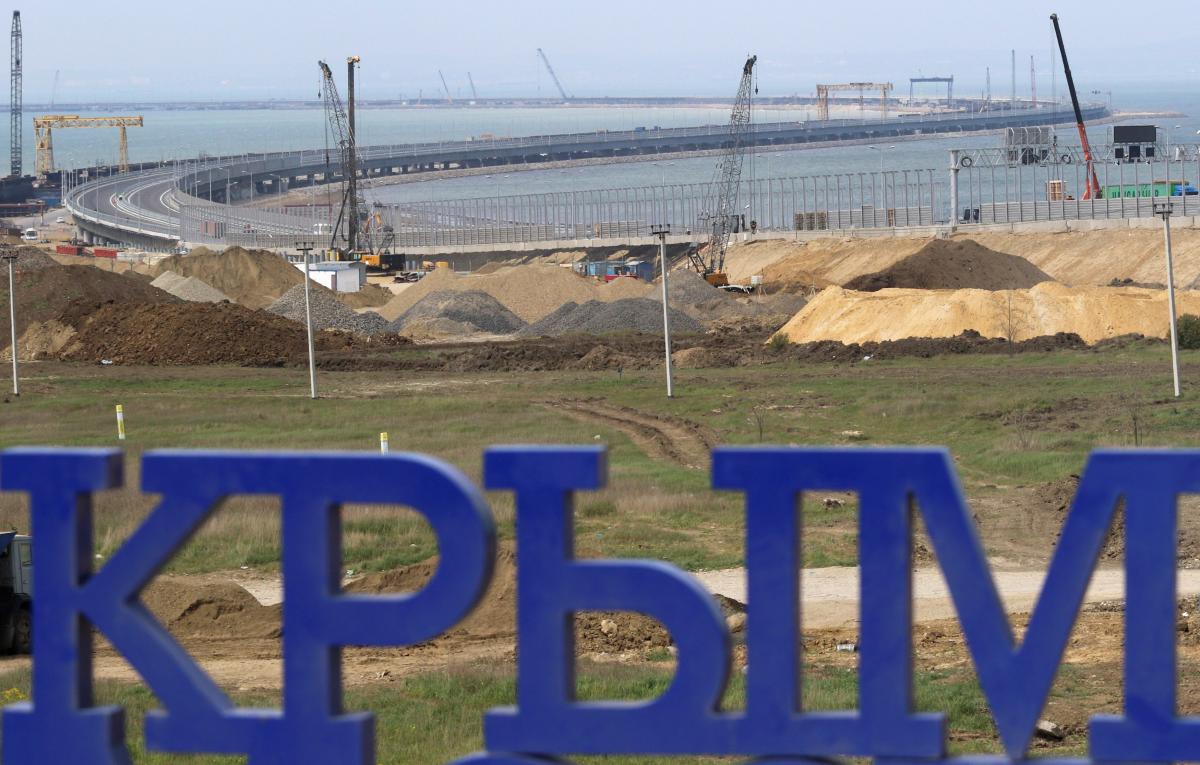
The Ukrainian Orthodox Church of the Kyiv Patriarchate has faced open attempts on the part of the occupation authorities in Crimea to drive it out of the peninsula or underground.
The latest process to grant Ukraine’s Church autocephaly may intensify repressive measures, the Kharkiv Human Rights Protection Group wrote.
In giving this sombre assessment at a press conference on October 9, Archbishop Klyment, the Head of the Church in Crimea, explained that up till now, the Russian occupation regime has been at least somewhat restrained in its offensive out of fear that this could provoke measures from the Ukrainian authorities with respect to the Orthodox Church of the Moscow Patriarchate. With the Russian Orthodox Church having reacted very aggressively to Constantinople’s apparent willingness to grant autocephaly, or autonomous status, and Russian state propaganda media full of dire warnings of imminent bloodshed as a result, the Church in Crimea is likely to find itself in an even more vulnerable position.
It was the Ukrainian Church of the Kyiv Patriarchate [UOC KP] that first came under fire following annexation, not least because of its openly pro-Ukrainian position and its public statement on March 11, 2014, condemning the Russian occupation of Crimea. That position made it inconceivable that the Church would agree to re-register under Russian legislation and enter into an agreement with the Russian Defense Ministry (over church premises in Sevastopol ‘handed over’ to that ministry). Lack of such registration has given Russia tools to use in depriving the Church and believers of their places of worship and of other rights.
Other methods have also been used, including the threat of physical reprisals by the armed paramilitaries, especially in 2014, vulnerability over the lack of Russian citizenship and also economic intimidation. There have been threats, for example, against those businesses who provided premises for the Church to use, with this being a reason why many religious communities have lost their places of worship.
In just the first year of the occupation, 38 out of 46 parishes ceased to exist, and in at very least three cases, churches were seized by the occupation regime: in Sevastopol; Simferopol and in the village of Perevalne.
Archbishop Klyment explains that of 25 priests in 2014, there are now only five (or possibly four, since the numbers don’t add up). There had been nine until this summer, however five left for mainland Ukraine after a number of searches of the homes of members of the Ukrainian Cultural Centre and after it became clear that the lack of a Russian passport was likely to be used against them. The remaining clergy try as far as is possible to continue services, sometimes helped by priests who come for one or two days from mainland Ukraine.
The services are always held in Ukrainian and the Archbishop has long spoken of the important role the Church has played in remaining a place where people come to hear and speak Ukrainian.
Read alsoBalukh suspends hunger strike amid transfer from Crimea to Russia
Asked about the number of believers, Klyment noted that he does not think that it has significantly fallen. While many did leave for mainland Ukraine, others have begun coming, for whom Ukraine remains their homeland. Interestingly, among those who attend services are Russian speakers who are not necessarily ethnic Ukrainians, but who continue to identify themselves as Ukrainians.
The Church, helped by lawyers from the Ukrainian Helsinki Human Rights Union and the Regional Centre for Human Rights, is currently involved in four legal suits with Russia: two directly against the Ministry of Defense, although all four appear to be over property that has been illegally appropriated.
One of the suits is over the actions of the bailiffs who carried out an extraordinary raid on the Cathedral of Volodymyr and Olga, the main Cathedral of the Ukrainian Orthodox Church under the Kyiv Patriarchate in Simferopol, on August 31, 2017.
Archbishop Klyment has been tireless in his defense of political prisoners and in reporting human rights violations. As well as the ill-treatment during the shocking plundering described above, he has also been detained once, on Oct 19,2016, as he was returning from mainland Ukraine and held for an hour. No explanation was given, but the incident came just a week after he had addressed an urgent plea to international bodies to “take decisive measures to protect fundamental rights of Ukrainians in Crimea”. He noted then that the situation was worryingly similar to Russia’s original detention, then ban on entering their homeland of Crimean Tatar leaders Mustafa Dzhemilev and Refat Chubarov.

